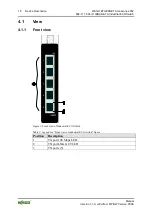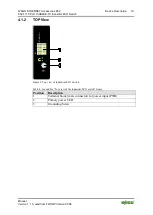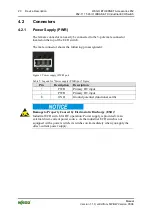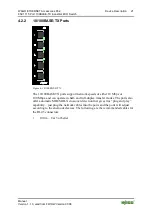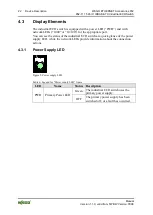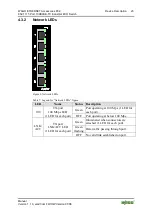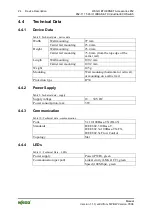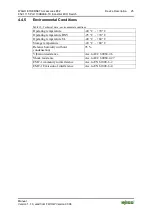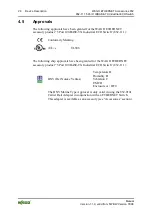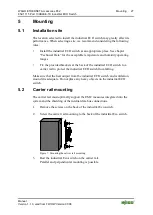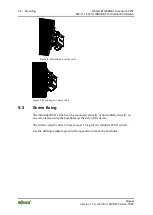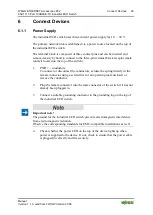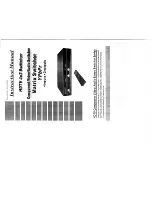
14
General
WAGO ETHERNET Accessories 852
852-111 5 Port 100BASE-TX Industrial ECO Switch
Manual
Version 1.1.0, valid from FW/HW Version 01/06
3
General
3.1
Scope of Supply
•
Industrial Eco Switch
•
Carrier rail support
3.2
Industrial Ethernet Technology
The range of WAGO switches ensures scalability of your network infrastructure
with outstanding electrical and mechanical characteristics. These robust devices
are designed for industrial use and they are fully compliant with IEEE802.3,
802.3u.
They have voltage supply with a supply voltage range of 18 … 30 V.
Characteristics such as auto negotiation and auto MDI/MDIX (crossover) on all
10/100 BaseTX ports are realized.
3.3
Switching Technology
Another approach to pushing beyond the limits of Ethernet technology is the
development of switching technology. A switch bridge Ethernet packets at the
MAC address level of the Ethernet protocol transmitting among connected
Ethernet or Fast Ethernet LAN segments.
Switching is a cost-effective way of increasing the total network capacity
available to users on a local area network. A switch increases capacity and
decreases network loading by dividing a local area network into different
segments, which don
t compete with each other for network transmission
capacity.
3.4
Auto Negotiation
The Industrial Switch’s 10/100Mbps switched RJ-45 ports auto negotiates with
connected devices to determine the fastest data transmission rate supported by
both devices. This helps make the Switch a plug and play device. The Switch’s
RJ-45 ports support full or half duplex, depending on which transmission speed is
supported by the attached device.
3.5
Switching, Filtering
Packets entering the Industrial Switch with source and destination addresses
belonging to the same port segment will be filtered, limiting those packets to one
port, and relieving the rest of the network from the need to process them. A packet
with a destination address served by another port segment will be forwarded to the
appropriate port, and will not be sent to the other ports where it is not needed.
Packets that are used to maintain network operations (such as the occasional multi
cast packet) are forwarded to all ports.



















